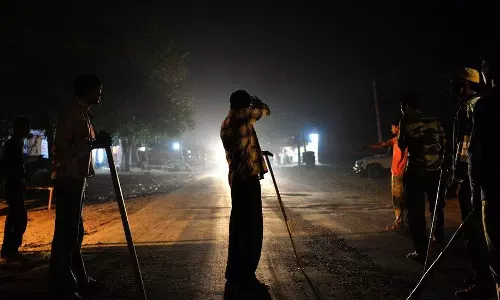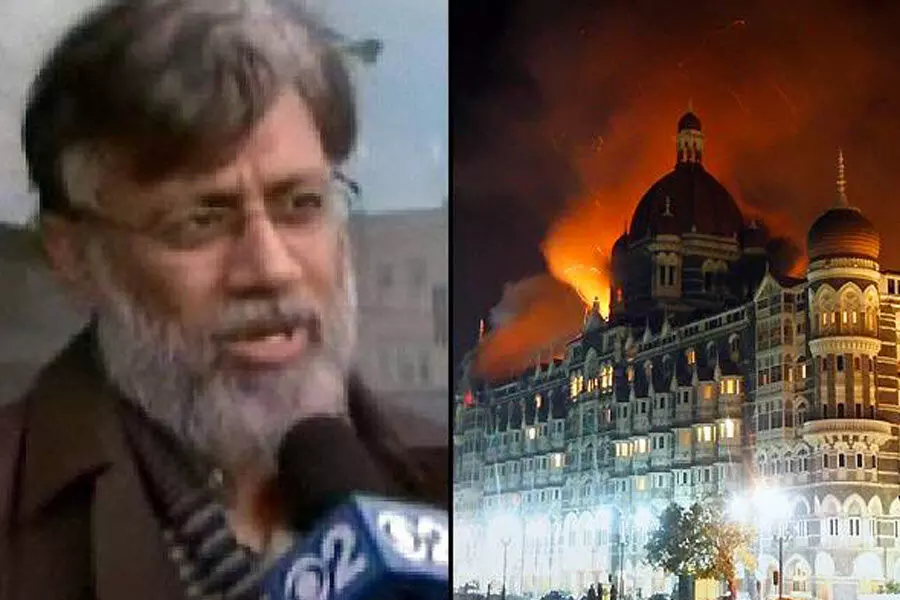
Mumbai terror attacks accused Tahawwur Rana's plea against extradition to India rejected by US court
text_fieldsWashington: Tahawwur Rana, a Canadian businessman of Pakistani descent, had requested a petition of habeas corpus from a US court, but it was denied. This opened the door for US Secretary of State Antony Blinken to certify his extradition to India, where he is wanted for his role in the 2008 Mumbai terror attacks.
A US judge authorised Rana's extradition to India in May, marking a significant success for India in its campaign to bring the perpetrators of the 26/11 Mumbai attacks to justice.
In June this year, Rana, who is currently detained at the Metropolitan Detention Centre in Los Angeles, filed a "writ of habeas corpus" challenging the court order that acceded to the request of the US government that the 2008 Mumbai terror attacks accused be extradited to India.
"The court has denied Tahawwur Rana's petition for writ of habeas corpus by a separate order," Judge Dale S Fischer, United States District Judge, Central District of California, wrote in his order on August 10.
However, Rana has filed an appeal against the order and sought a stay on his extradition to India till the time his appeal in the Ninth Circuit Court is heard.
Rana faces charges for his role in the Mumbai attacks and is known to be associated with Pakistani-American terrorist David Coleman Headley, one of the main conspirators of the 26/11 Mumbai attacks.
Judge Fischer in his order said Rana has only made two basic arguments in the writ.
First, he claims that, pursuant to the treaty, he cannot be extradited because India plans to prosecute him for the same acts for which he was charged and acquitted in a United States court. Second, he argues that the government has not established that there is probable cause to believe that Rana committed the Indian offences for which he is expected to stand trial, the judge said.
He denied both arguments of Rana.
"Given that, even if (David) Headley's testimony were the entire basis for the probable cause finding, it would be sufficient for the purposes of habeas review because it constitutes some competent evidence supporting the finding. For the reasons stated above, Rana's petition for a writ of habeas corpus is denied," the judge wrote.
Following Judge Fischer's order, Patrick Blegen and John D Cline, Rana's two attorneys filed an appeal to the United States Court of Appeals for the Ninth Circuit from the Order entered on August 10, 2023, for denying his petition for writ of habeas corpus.
In a separate appeal, Blegen has filed a petition "for a stay of extradition pending his appeal" to the United States Court of Appeals for the Ninth Circuit from the court's order denying his petition for a writ of habeas corpus.
"As set forth in the accompanying memorandum, petitioner submits that a stay of extradition pending appeal is appropriate because he has made a strong showing that he is likely to succeed on the merits of his non-bis in idem claim; he will suffer irreparable harm if he is extradited, potentially including the death penalty; a stay pending appeal will not substantially injure the government; and the public interest favours a full review of Rana's non-bis claim before he is sent to a country that seeks to execute him," Rana's attorney wrote on August 14.
In June, the Biden administration urged the court to deny the writ of habeas corpus filed by Rana.
"The United States respectfully requests that the court deny Rana's petition for a writ of habeas corpus," said E Martin Estrada, US attorney for the Central District of California, in his petition filed before the US District Court for the Central District of California.
India filed a complaint on June 10, 2020, seeking the provisional arrest of Rana with a view towards extradition. The Biden administration supported and approved his extradition to India.
Filing the writ of habeas corpus through his attorney, Rana challenged his extradition by the government of India.
Rana's extradition would violate the United States-India extradition treaty in two respects, his attorney argued.
First, Rana has been tried and acquitted in the United States District Court for the Northern District of Illinois for charges based on the identical conduct for which India seeks to prosecute him.
He argued that extradition is, therefore, barred under Article 6(1) of the Treaty, which declares that "extradition shall not be granted when the person sought has been convicted or acquitted in the Requested State for the offence for which extradition is requested."
Second, the material submitted by the Government of India - consisting principally of transcripts and exhibits from Rana's trial in the Northern District of Illinois - fails to establish probable cause that he committed the offences for which India has charged him. The Indian government's extradition request thus fails to satisfy Article 9.3(c) of the Treaty, the attorney said, adding the court should grant the writ of habeas corpus, deny extradition and order Rana's release.
However, the US government has said that Rana be extradited to India.
In his submission to the US Court on June 23, the US attorney argued that Rana's claims about the legitimacy of his business in Mumbai fall flat.
The evidence does not support Rana's assertion that the Mumbai office conducted legitimate business, but even if it did, the engagement of legitimate business activities does not preclude a finding that Rana's business also served as a cover for Headley's terrorism-related activities in Mumbai.
"Rana's claims about who funded the Mumbai office also do not relate to whether Rana lacked knowledge of and support for Headley's activities. Similarly, even if Rana hoped to continue business operations in Mumbai, the evidence reveals that neither Rana nor Headley renewed the business lease that expired approximately two weeks before the start of the Mumbai attacks," Estrada argued.
India's National Investigation Agency (NIA) is probing Rana's role in the 26/11 attacks carried out by terrorists of the Pakistan-based Lashkar-e-Taiba group. The NIA has said that it is ready to initiate proceedings to bring him to India through diplomatic channels.
A total of 166 people, including six Americans, were killed in the 2008 Mumbai terror attacks in which 10 Pakistani terrorists laid a more than 60-hour siege, attacking and killing people at iconic and vital locations of Mumbai.
With PTI inputs






















